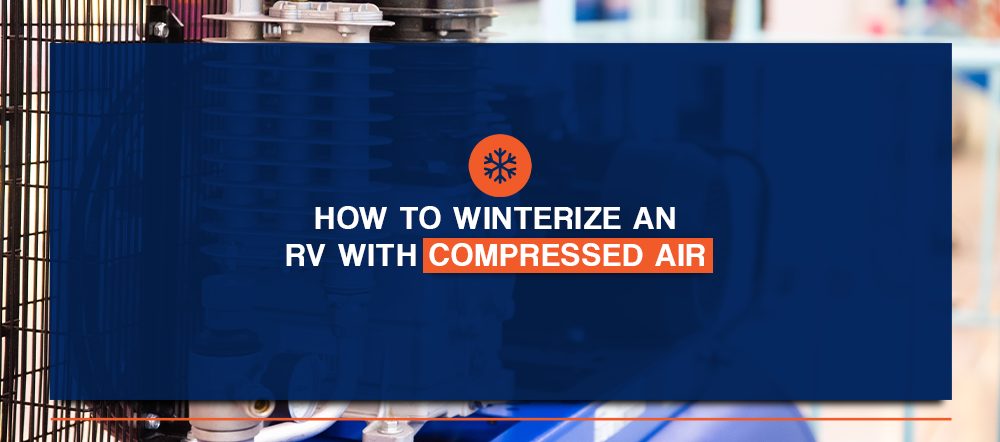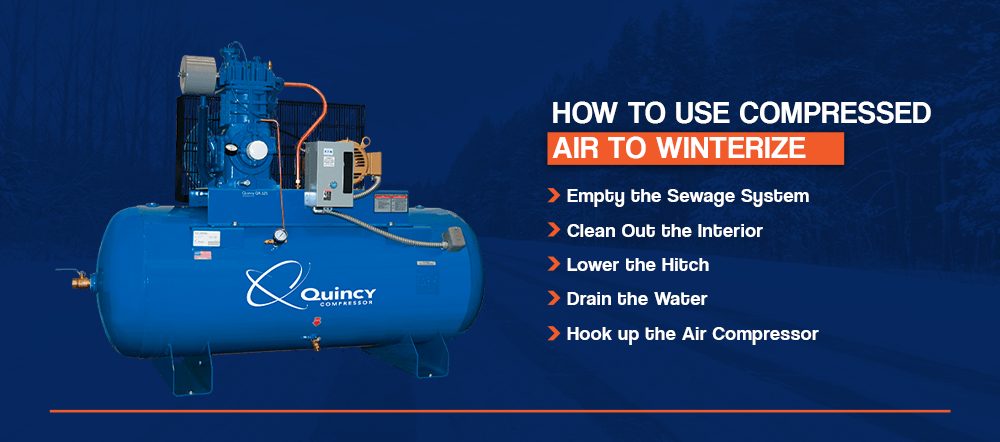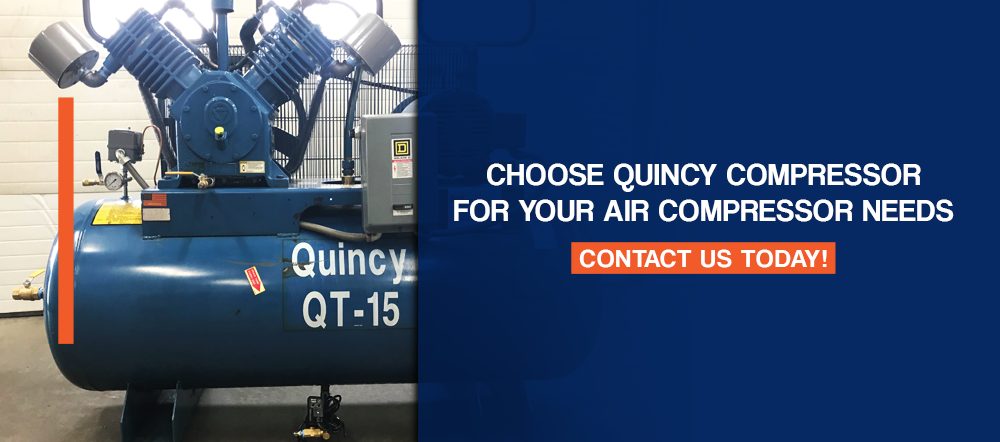The summer travel season is winding down, and it won’t be long before colder temperatures arrive. For RV owners who spend the winter in colder climates, the cold season’s pending arrival means it’s time to winterize your RV.
When winterizing an RV, it’s a good idea to methodically inspect the interior and exterior, making sure each system is in good working order. In addition to the engine, batteries, propane tanks and interior, one of the most important areas to winterize in an RV is the pipes that carry water.
Draining the water from the pipes before it gets cold prevents the water from freezing and expanding until the pipes burst. Avoiding this and other problems before they happen is the best way to ensure you’ll be back on the road — and not in the shop — as soon as warmer temperatures return.
Why Do You Need to Winterize Your RV?
Winterizing is essential to extending an RV’s lifespan. Removing and storing external propane tanks, cleaning old food out of the refrigerator and storing batteries in a dry location — all these things keep your RV working properly to preserve your comfort during the travel season.
If you spend winters in an area prone to harsh weather, the cold temperatures can wreak havoc on an RV’s systems, especially its plumbing. If any amount of water is left inside the pipes, it can freeze and expand, causing the pipes to burst — just as they would in a home where the temperature drops too low. Burst pipes can make a big mess and cost a lot to repair.
One common method of draining pipes for winter is to remove some of the water and then pour antifreeze into the plumbing. The antifreeze lowers the water’s freezing temperature, making it less likely that the moisture left behind will turn to ice. The problem with using antifreeze is that there really isn’t a good way to drain it all out of the pipes. Your family may end up drinking or showering in water with trace amounts of antifreeze in it, or a beloved pet may consume it.
A safer, more effective alternative to antifreeze is using compressed air to winterize the pipes in your RV.
How to Use Compressed Air to Winterize
Winterizing an RV with compressed air means you essentially blow air through the pipes to remove any water left behind from when you drained the plumbing. Although you can hire a professional company to do this for you, learning how to winterize your plumbing is a relatively simple DIY process:
1. Empty the Sewage System
Before you do anything else, take the RV to a dump station and hook up the black and gray tanks to the intake. Drain the black tank — containing human waste — first. The water from the gray tank will be used to flush the black tank. Once both are empty, use a hose to rinse them off at the dump station.
2. Clean Out the Interior
Once the tanks are cleared out, take some time to clean up the RV’s interior. Wash and put away dishes and throw away or remove all food items. Check to make sure there are no open windows or doors. Otherwise, you’ll open the RV up in the spring and find a bird or mouse has made a home there.
3. Lower the Hitch
Lower the hitch slightly so the water coming out of the pipes can flow out of the release valve. Don’t lower the RV too much — just enough that it’s slightly leaning toward the side where the main water drain is located. This is the petcock.
4. Drain the Water
Remove the petcock and allow the water from inside the RV to begin draining out. To help the water drain, go inside the RV and turn on the faucets and shower to encourage water to flow out of the pipes. It’s also a good idea to flush the toilet a couple times.
5. Hook up the Air Compressor
Connect the RV’s blowout plug to the compressor’s air hose. Then connect the plug to the RV’s water inlet. Set the air compressor’s maximum pressure between 30 and 50 pounds per square inch (psi) and begin pumping air into the pipes at 30-second intervals. After 30 seconds, pause for several seconds, and then start again. Repeat this process until there is no more water coming out of the drain.
What Type of Air Compressor Should You Use to Winterize?
When choosing the right air compressor to winterize your RV, the tank’s volume is more important than the amount of pressure. For example, you can use a 2-gallon compressor that allows you to set it between 30 and 50 psi. The tank’s size is less important than its ability to stay within this ideal pressure range. Make sure whatever tank you’re using can handle the right amount of pressure necessary to get the job done.
Benefits of Using Compressed Air to Winterize
When winterizing with compressed air, this method offers two primary benefits:
1. Ease of Use
Compressed air is easy to use to blow water out of your RV’s pipes. All you have to do is connect the compressor and get started. A small air compressor can travel with you or be stored in a garage at home, so you can pull it out each fall when you’re ready to winterize. If you don’t own one, they’re easy to rent or borrow from a friend.
2. Safe for People and Pets
Regular antifreeze is toxic, meaning that even if you flush the lines in the spring before you start using the water, your family and guests may be exposed to trace amounts of antifreeze in their drinking water and shower water. RV antifreeze is nontoxic, which means RV owners may assume they can just dump it on the ground when they empty their pipes. But even nontoxic antifreeze shouldn’t be dumped where it can leech into the groundwater. Antifreeze is also toxic to animals, such as family pets.
Choose Quincy Compressor for Your Air Compressor Needs
At Quincy Compressor, we know firsthand the value of family. Spending time together traveling the open road creates family memories that last a lifetime. The last thing you need is to have those precious memories interrupted by busted pipes that weren’t properly winterized.
Quincy Compressor offers a wide range of portable air compressors for RV owners looking to winterize without antifreeze. Built to last, many of Quincy’s high-quality models also come with outstanding warranties that exceed anything our competitors can offer. Browse our selection online or locate a Quincy sales and service representative near you to get started.





